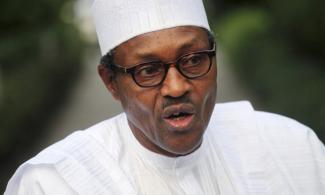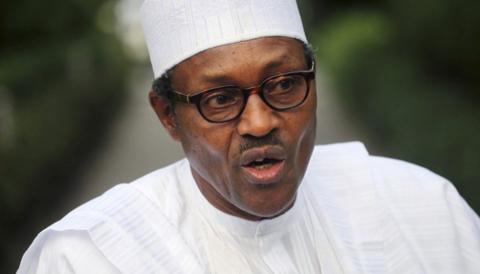
Save the naïve, Nigerians, far and wide who threw their weight behind the president knew that given his military background and hermitic lifestyle, coupled with his unsophisticated, nay constricting worldview, he was not the best Nigerians could offer for 21st century leadership; but the situation of things, which left the hapless masses with no choice but the elite consensus made the president the best bet, considering the rate at which we were sinking in the hands of his arch rival, Goodluck Jonathan.
“Kai, seriously embarrassed at what I’m hearing these illiterate artisans say about Buhari here now. Not sure this man can ever recover from this goodwill bungling. The words are unprintable. Decency won’t allow me post here.” - Suraj Tunji Oyewale on Facebook.
The inability of the All Progressives Congress (APC) to embrace change, its motto, a central theme to the party’s success at the 2015 polls has been largely attributed to the disparity between the change the ruling party rode on to power and that which the citizenry envisioned; the extent at which they hold the electorates in contempt, and most visibly, the indiscipline among members of the party’s core leadership, a manifestation of the lip service gladiators in the nation’s political space pay to the covenant they make with the people.

The conundrum becomes more worrisome when one beams a searchlight on the biggest beneficiary of the change project, Muhammadu Buhari. A reflection into his actions, inactions and counter-actions in his ten month reign at the helm of affairs would make one almost give up on this administration even as it has barely begun.
Save the naïve, Nigerians, far and wide who threw their weight behind the president knew that given his military background and hermitic lifestyle, coupled with his unsophisticated, nay constricting worldview, he was not the best Nigerians could offer for 21st century leadership; but the situation of things, which left the hapless masses with no choice but the elite consensus made the president the best bet, considering the rate at which we were sinking in the hands of his arch rival, Goodluck Jonathan.
At whatever angle one looks at recent developments in the polity, any straight-thinking person should have little problems agreeing that Muhammadu Buhari’s candidature was a weighty encapsulation of change away from the values previous administrations hold in high esteem.
But in what appears to be a combination of sheer indifference, executive hubris, and utter disregard or rather, disrespect for the sanctity of the Nigerian life, President Muhammadu Buhari, from the very first day he assumed office to this moment has exhibited attributes that create an impression of his administration’s easiness to aligning with the junketing values and opinionated tendencies of Olusegun Obasanjo’s administration, the snail-paced inertia and sanctimoniousness of Umaru Musa Yar’adua’s, and the practice of absolute elitism and dumbness, nay, deafness to the urgency of now which piled up into an ocean of acrimony Nigerians drowned Dr. Jonathan in.
With the country riddled with tales of corruption at unprecedented levels in history, countrymen did not find it difficult knowing where to begin: anti-corruption. With this, neither the people’s prior knowledge of the general’s inability to provide modern leadership nor his difficulties in appreciating and embracing the complexities of the country he wished to lead could get in their way. Let’s tackle corruption, they said, and we would have revived our journey to nationhood.
Now that corruption is being tackled, it appears as though the remnant of the old order is pinching us in ways we never envisaged. From nepotism to blatant violation of human rights, institutional hubris to high-handedness, it’s as though the country is subsumed in an ogre of inversion.
Where do we begin?
While on a condolence visit at the home of the late James Ocholi, the Attorney-General of the Federation, Abubakar Malami, after paying his respect to the dead told the family that the president had hired the deceased eldest son into one of the nation’s institution: the Federal Ministry of Justice.
He was not done.
The other siblings would get state-sponsored scholarship.
The gesture he said, was “because he [James Ocholi] was the breadwinner and the children are now orphans.”
Firstly, the minister died with two members of his family so it won’t be out of place to assume that he was not on an official assignment. If this was the case, why compensate his children from our official purse?
Secondly, Ocholi is a SAN, and that’s a whole lot of money in the wig. Could the president be advancing the concept of “the rich getting richer and poor getting poorer?” The civil service is an establishment that exists within a legal framework wherein arbitrariness of this sort is not only illegal, but unjust. So it’s fitting to ask if there was a vacancy in the ministry of justice or the president just decided to create one solely to advance institutionalized cronyism. If there was, was the job advertised?
The gross nepotism is further magnified when one remembers that the president, although well acquainted with the great strides and sacrifices our soldiers make to retain Nigeria on the world map, has found none of their children worthy of scholarship or employment. Did the president pause to reflect for a moment the thoughts within the head of an average Nigerian soldier as the AGF played his elitist script?
Men and women who keep our nation running die daily on our pot-hole ridden roads with no one giving a hoot about their orphans. The same fate befalls our aged pensioners who get their lives cut while on queue to get captured in the phantom accreditation exercises across several states of the federation. A youth corps member recently died from Lassa fever and I doubt if his family would get more than a mere condolence message and a token.
Lest I’m labeled a stone, let me be clear that my submission here is motivated by a desire to live in a country free from the clutches of favoritism, cronyism and all the other variants of class opportunism which has made the citizens lose faith in the governance structure of the country.
Buhari’s gesture towards the Ocholis’ is enough to make every Nigerian ask the president how much who would pay for the life of an indigent Nigerian because a zoom in on the number of lives that have been lost to the recent agitation for the sovereign state of Biafra, the massacre of Shiites in Zaria, the killing spree spearheaded by the cattle activists in Agatu and its environs, would in all honesty indict our collective humanity.
Our hope was that with change, a number of chapters in our black book will finally be don in mild ink. Alas, with several dots on the Nigerian map falling under the red ink every single minute while the president continues in his usual laconic fashion, the citizens, comprising of mostly indifferent souls, are thrown in a state of anxiety as they transit from sixteen years of impunity into a journey of national bloodletting.
If there is anything called a summit of collective humanity, now more than ever, is the time to convene it.
Modiu Olaguro, a youth corps member teaches mathematics at Jebba. Email me at [email protected] and follow on Twitter @ModiuOlaguro